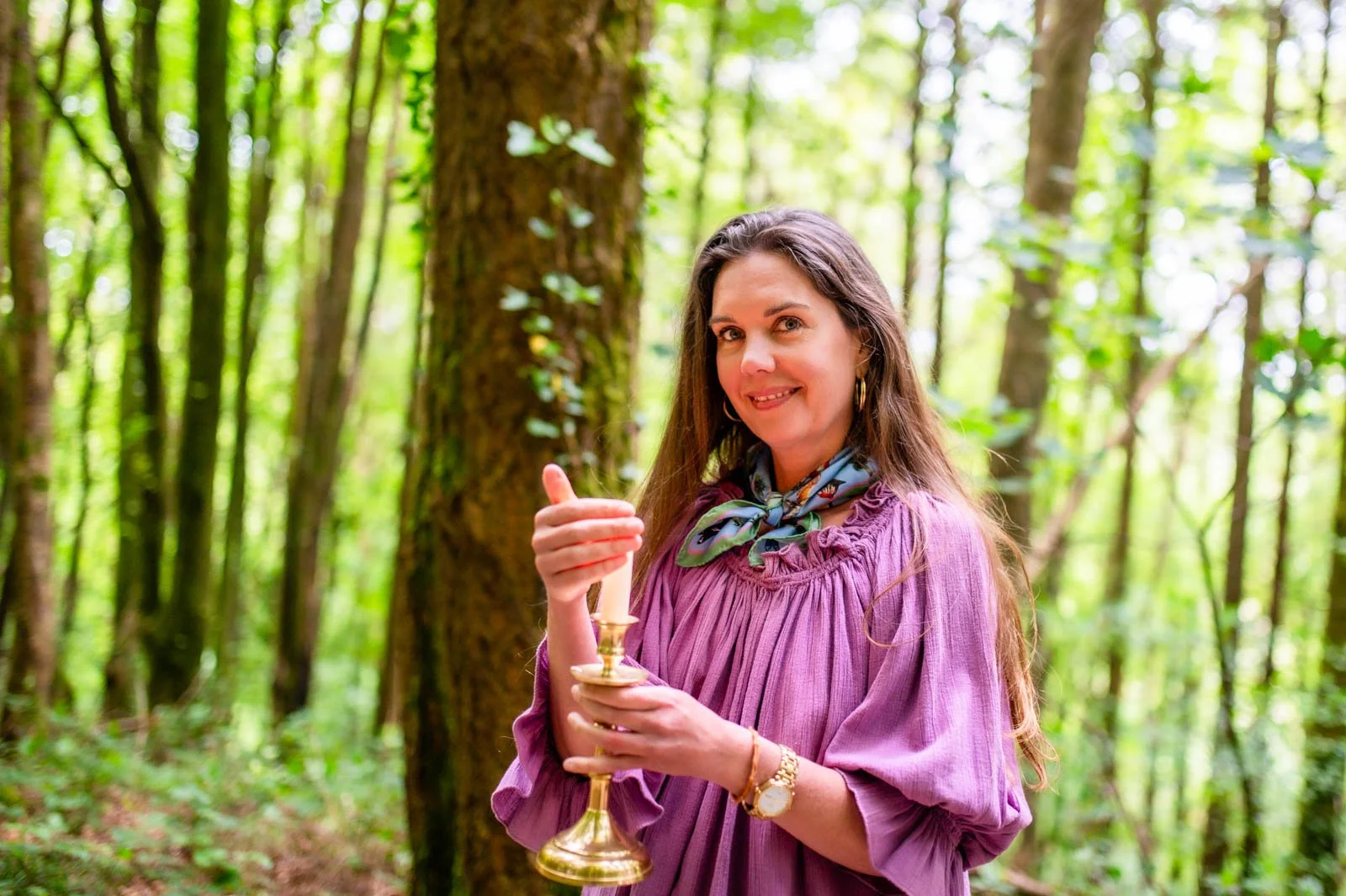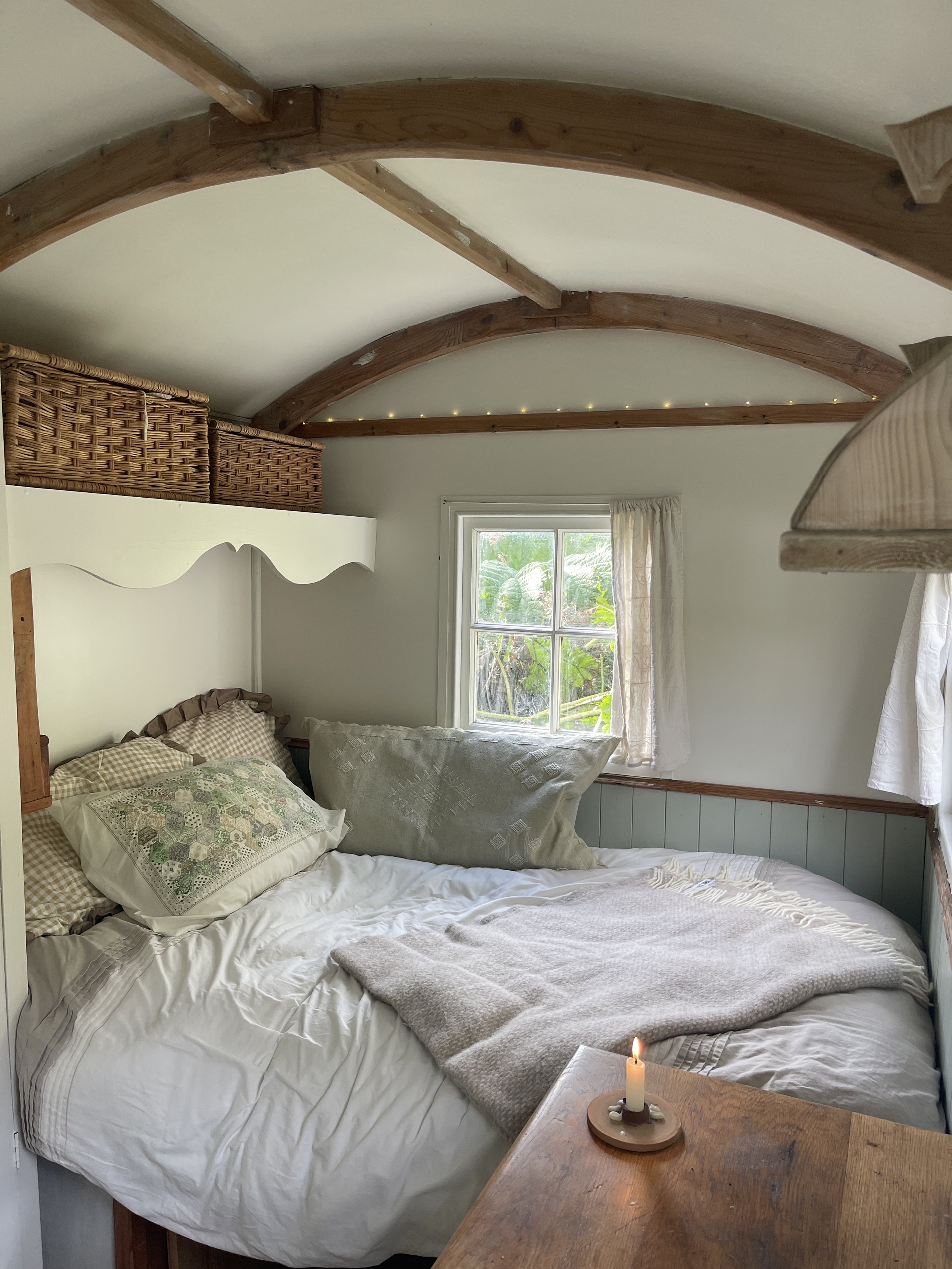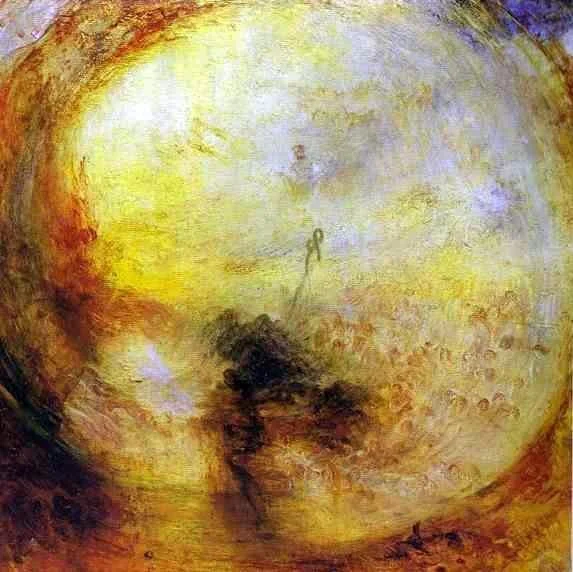The Fertile Ground of Not Knowing
Hannah Green
Hello friends,
As we settle into November and the year begins its quiet descent, I've been thinking about patience. About the difference between resolving and remaining open to what wants to emerge. Above is a photo of the little Shepards hut I have fixed up on the land, a place to rest and retreat, a place that can remind me to slow down.
When I was an early clinician, I felt it viscerally: that powerful urge to fix. People came to me wanting relief from their pain, their conflict, their confusion. And I wanted so badly to give it to them. To resolve their struggles. To smooth the wrinkled fabric of their lives and hand it back to them, clean and whole.
But my clients taught me something different. They taught me, slowly and sometimes painfully, to relax into the process. To stop grasping for resolution and instead learn to stay curious, to stay open. To let things breathe and unfold according to their own mysterious intelligence.
As I look toward next year, I find myself preparing to dive even deeper into this practice. I'll be connecting with my intuition through art in the Porthmeor program at St Ives School of Painting and studying with some local Jungian analysts and teachers who understand this work of staying open to what wants to emerge. And my partner and I will be planting a garden, something entirely new to me that will initiate me into a completely different pace and way of being. The garden doesn't respond to urgency or impatience. It teaches only one thing: trust the process, tend what's before you, and wait.
Two Practices, One Teaching
Both psychotherapy and art practice offer us profound training grounds for this essential skill. In the therapy room and at the easel, we face the same fundamental question: Can we tolerate not knowing? Can we resist the compulsion to resolve prematurely and instead remain present to what is unfolding, like watching a watercolor bloom across wet paper, like waiting for dreams to reveal their meaning, like sitting with a client's tears without rushing to make them stop?
From a Jungian perspective, this is the work of psychological maturity. Jung understood that the psyche doesn't want to be "fixed." It wants to be witnessed, to be held, to unfold according to its own deep knowing. He spoke of the tension of opposites, the holding of paradox, the willingness to sit in what he called the "temenos," that sacred container where transformation happens not through force but through patient attention. The way alchemists understood that transformation requires time and heat. The way love teaches us that true intimacy cannot be forced.
The immature ego demands certainty. It wants answers now, wants the story to resolve before the final page, wants to know how things will turn out before committing to the journey. It cannot bear the tension of the unknown. But emotional maturity, true psychological development, requires that we learn to meet our edge differently. That we develop the capacity to dwell in what I've come to think of as "the open growth place," that liminal space between question and answer, between wound and healing, between who we were and who we're becoming.
Turner "Light and Colour (Goethe's Theory)" All swirling, indeterminate, refusing to resolve into clear forms - pure atmospheric presence.
Learning to Tolerate This Together
In my early years of practice, I didn't understand this. But my clients and I learned it together, the way travelers learn a foreign landscape: slowly, with stumbles and discoveries, with moments of grace that arrived only because we'd gotten lost first. We learned to tolerate the discomfort of not having immediate answers. We discovered that the urge to resolve, while understandable, even noble in its origins, often cuts short the very process that wants to lead us somewhere deeper, truer, more alive.
This isn't about resignation or passivity. It's about tilling the soil. It's about creating fertile ground to meet life's constant mysteries, unknowns, and frustrations. Because here's the truth, spoken plainly: they never stop coming. Life keeps presenting us with uncertainty, with complexity, with questions that have no simple answers. The river keeps flowing, whether we stand on the bank demanding it be still or finally step into the current and learn to swim.
I'm learning to orient myself around this reality. To open to an examined life rich with compassion, not as a martyr or saint, but as a gardener who knows that growth happens in the dark soil long before it reaches toward the light.
The Way of Curiosity
What does this actually look like in practice? It means learning to emotionally regulate ourselves through the body: through conscious breath, through grounding, through self-compassion. When we can anchor ourselves in the present moment, when we can turn toward ourselves with kindness rather than judgment, something shifts. We discover we can stay present with discomfort without needing to immediately resolve it. We find we are more spacious than we knew, more capable of holding paradox.
This is how we move beyond the compulsion to fix. This is how we stay in the fertile place where real growth happens.
Jung spoke of individuation, the lifelong process of becoming more fully ourselves. Not the resolved and finished version we imagine is waiting at the end of enough therapy sessions, but the self that is always unfolding, always in process. This process asks us to trust that something is working in us and through us, even when we cannot see the outcome. To trust the intelligence of our own unfolding.
An Invitation
Where in your life might you be rushing toward resolution? What if the not-knowing itself is the teacher?
I love exploring this work through individual therapy, couples therapy, and psycho-spiritual coaching sessions centered around the tarot. Sometimes we need a companion for the journey into the fertile ground, someone to hold space while we learn to stay open, to help us find our breath when the urge to resolve becomes overwhelming, to remind us that the not-knowing is not a problem to be solved but a mystery to be lived.
This is the practice. This is the art. This is how we learn to meet our edge and remain in the open growth place, where life continues to surprise us, challenge us, and shape us into who we are becoming, who we have always been becoming, one breath at a time.
With love,
Hannah Green MFT


